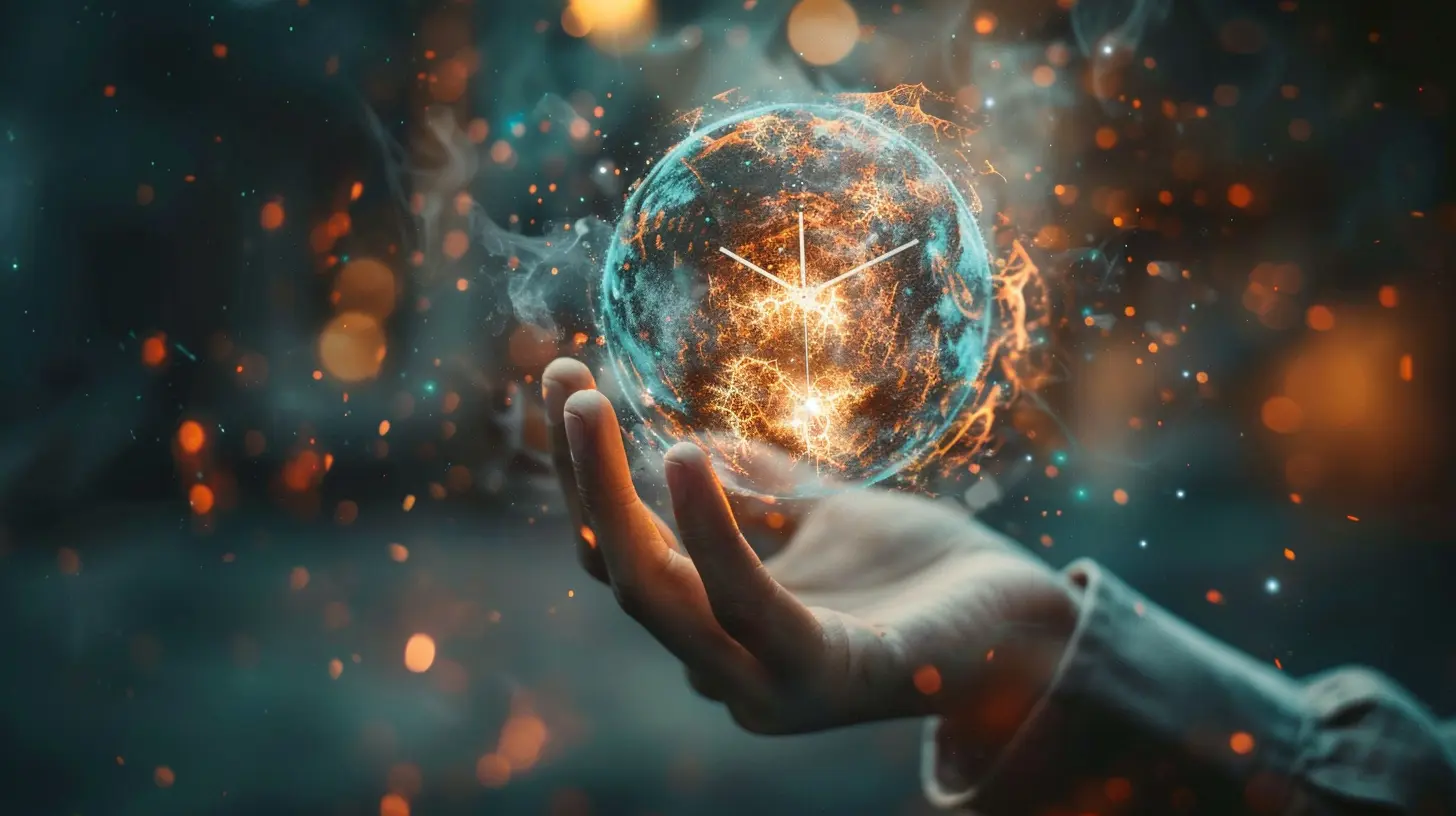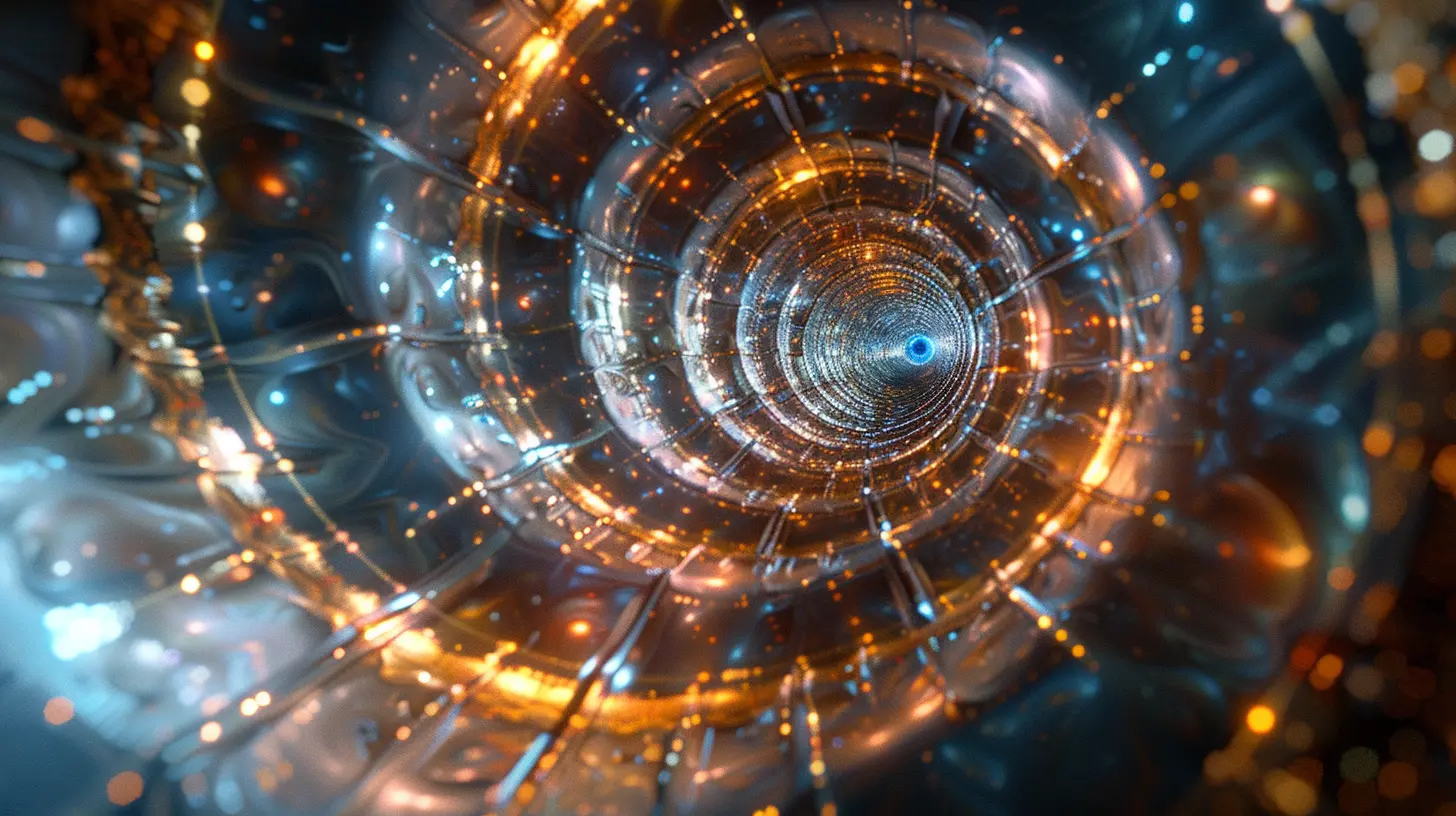The Neuroscience of Time Perception: Why Time Feels Fast or Slow
7 November 2025
Have you ever noticed how time seems to fly when you're having fun, yet it drags when you're bored or anxious? Or how your childhood summers felt endless, while the past few years have zipped by in a blink? You're not alone—that's your brain playing tricks on you. And it turns out, there’s actually a lot of science behind it.
Welcome to the weird and wonderful world of time perception, where neuroscience, psychology, memory, and emotion all collide. It's a fascinating topic—and the cool part is, once you understand how it works, you can actually influence how time feels in your own life.
Let’s take a deep dive into the brain’s inner clockwork and unpack why time sometimes sprints, sometimes crawls, and always keeps us guessing.
What Is Time Perception, Really?
Time perception is our brain’s ability to sense and interpret the passage of time. Simple, right? Not quite.Unlike our senses of sight or sound, we don’t have a dedicated “time organ” that tracks time. Instead, it's more like an orchestra of brain functions working together—attention, memory, emotion, and our internal biological rhythms all play a role. Our brain slices time into chunks, and how it's processed depends on what we’re doing, how we're feeling, and even how old we are.
In short, it’s not time that changes—but our perception of it.
The Brain's Timekeepers: A Peek Inside
So which parts of the brain are responsible for our sense of time? Neuroscientists have been exploring this question for decades, and while there’s still much to learn, a few key players have emerged:🧠 The Cerebellum
You might know the cerebellum for helping you balance and move smoothly, but it’s also involved in timing precise movements—like catching a ball or playing an instrument. It plays a big role when we’re dealing with short intervals of time (milliseconds).🧠 The Basal Ganglia
This group of structures deep in the brain helps with rhythm and timing, especially for tasks that require quick decisions. It’s also strongly linked to dopamine, the feel-good neurotransmitter that boosts motivation and attention—both of which affect how we perceive time.🧠 The Prefrontal Cortex
Located right behind your forehead, the prefrontal cortex is like the brain's CEO. It helps with planning and decision-making and contributes to our experience of time over longer spans—minutes, hours, even years.🧠 The Hippocampus
This area is a biggie when it comes to memory. And memory is crucial for how we sense time. Ever wonder why some moments feel like they stretch forever, while others disappear in a blur? The hippocampus is the memory-maker, storing slices of time so we can look back on them.
Why Time Feels Different in Different Situations
Let’s get into what really messes with our internal clock. You’ll probably relate to more than a few of these.1. Attention: The Spotlight Effect
Here’s the deal—when you’re focused on something, especially if it’s high-stakes or dangerous, your brain logs more details. This “hyper-detailing” makes it feel like more time has passed. Think of a car accident or a tight deadline at work. You're fully zoned in, and afterward, it feels like time stretched.Now flip it. You're binge-watching a show or scrolling through your phone—you're distracted, not focused on time at all. That’s when hours vanish without you realizing.
2. Emotion: Time’s Greatest Manipulator
Emotions are time’s spin doctor. When you're anxious, your brain is more alert and constantly checking the environment—that makes time feel slower. On the opposite end, happiness and excitement make time go lightning-fast.It’s almost like your emotions are turning the dials on an invisible stopwatch.
3. Novelty: The Brain’s Love for "New"
Ever notice how vacations or new experiences feel long while you're in them but seem to have passed quickly in hindsight? That’s novelty at work.New experiences force your brain to create tons of new memories, which makes the day feel rich and stretched. But when we look back, we may compress that time unless we actively recall those rich memories.
Routine, on the other hand, does the opposite. When every day feels the same, the brain doesn't need to store much—so time compresses and vanishes before your eyes.
Why Time Feels Faster As We Age
Okay, this one’s a classic. Most of us feel like each year goes faster than the last. Why?There are a few solid theories.
💡 Proportional Theory
This one’s simple math. When you're five years old, one year is 20% of your entire life. At 50, one year is only 2%. So, relatively speaking, a year feels smaller and smaller as you get older.💡 Fewer "Firsts"
Childhood is full of new experiences—first bike ride, first day at school, first vacation. These “firsts” fill your brain with vivid memories, stretching out time. As adults, novelty often takes a backseat to routine, and those detailed memories don’t get created as often.Fewer new memories = shorter perceived time.
The Role of Memory in Time Perception
You might think time just marches forward, but your perception of time is actually built retroactively. That means your brain pieces together events, emotions, and sensory input to estimate how long something lasted after it happened.The more memorable and emotionally intense something is, the longer it feels in hindsight. That's why a jam-packed vacation feels like it lasted forever—because your brain is full of fresh memories to unpack.
This also explains why traumatic or highly emotional moments feel frozen in time. Your brain records every detail like it's trying to make sense of it, leading to a feeling of time dilation.
Can You Trick Your Brain Into Slowing Down Time?
Here’s the fun part—yes, you can. Although we can’t actually slow down time (we’re not magicians… yet), we can change how we experience it.Here are a few tips:
✨Be Present
Mindfulness helps you slow down and actually absorb what's happening. When you're completely focused—whether you're eating, walking, or having a conversation—you engage with more sensory input, which creates richer memories.✨Seek Novelty
Try something new: take a different route to work, learn a new skill, or visit a place you’ve never been. Novelty forces your brain to pay attention and log the moment in detail.✨Limit Multitasking
Multitasking scatters your attention. You may get more done, but your brain won’t absorb much of it. Stick to one thing at a time to make moments more meaningful and easier to recall later.✨Practice Meditation or Deep Breathing
These techniques help calm the nervous system, reduce anxiety, and sharpen your attention—all of which can influence how you process the passage of time.How Time Perception Impacts Mental Health
Now, let’s talk about how your sense of time can affect your mood and vice versa.People with depression often feel that time drags—a minute can feel like an hour. Anxiety, on the other hand, can either speed things up or slow them down depending on your level of hyper-awareness.
Understanding how your brain is processing time can help you make sense of these feelings. If you know your sense of time is linked to attention and emotion, you can start to gently work on shifting those areas instead of feeling stuck.
Time Perception in Different Cultures
This might surprise you, but not everyone sees time the same way. In Western cultures, time is often seen as linear—past, present, future. But in many Eastern and Indigenous cultures, time is circular or fluid, focused more on cycles like seasons or spiritual events.Even the way we speak about time changes things. English says “a long time,” while some cultures might say things like “a full time” or “a deep time.” That tiny shift in thinking can subtly influence how we experience it.
Final Thoughts: Time Isn’t Just a Clock
So there you have it. Time perception isn’t just about ticking seconds or flipping calendar pages. It’s a deeply personal, flexible, brain-based experience shaped by what you pay attention to, how you feel, how you remember, and even how often you try something new.And that’s good news.
Because it means you’re not a passive observer. You can influence how time feels simply by changing how you engage with the world.
The next time you feel like life is rushing past you—or dragging through mud—take a breath. Notice your emotions. Focus on what’s happening right now. That’s where time really lives.
all images in this post were generated using AI tools
Category:
NeuroscienceAuthor:

Eliana Burton
Discussion
rate this article
1 comments
Sage Roberson
Time flies when you’re having fun, but it crawls when you’re waiting—thanks, brain, for the ultimate mood swing!
November 8, 2025 at 3:51 AM

Eliana Burton
Absolutely! It's fascinating how our brains perceive time differently based on our experiences and emotions. Thanks for your insight!


